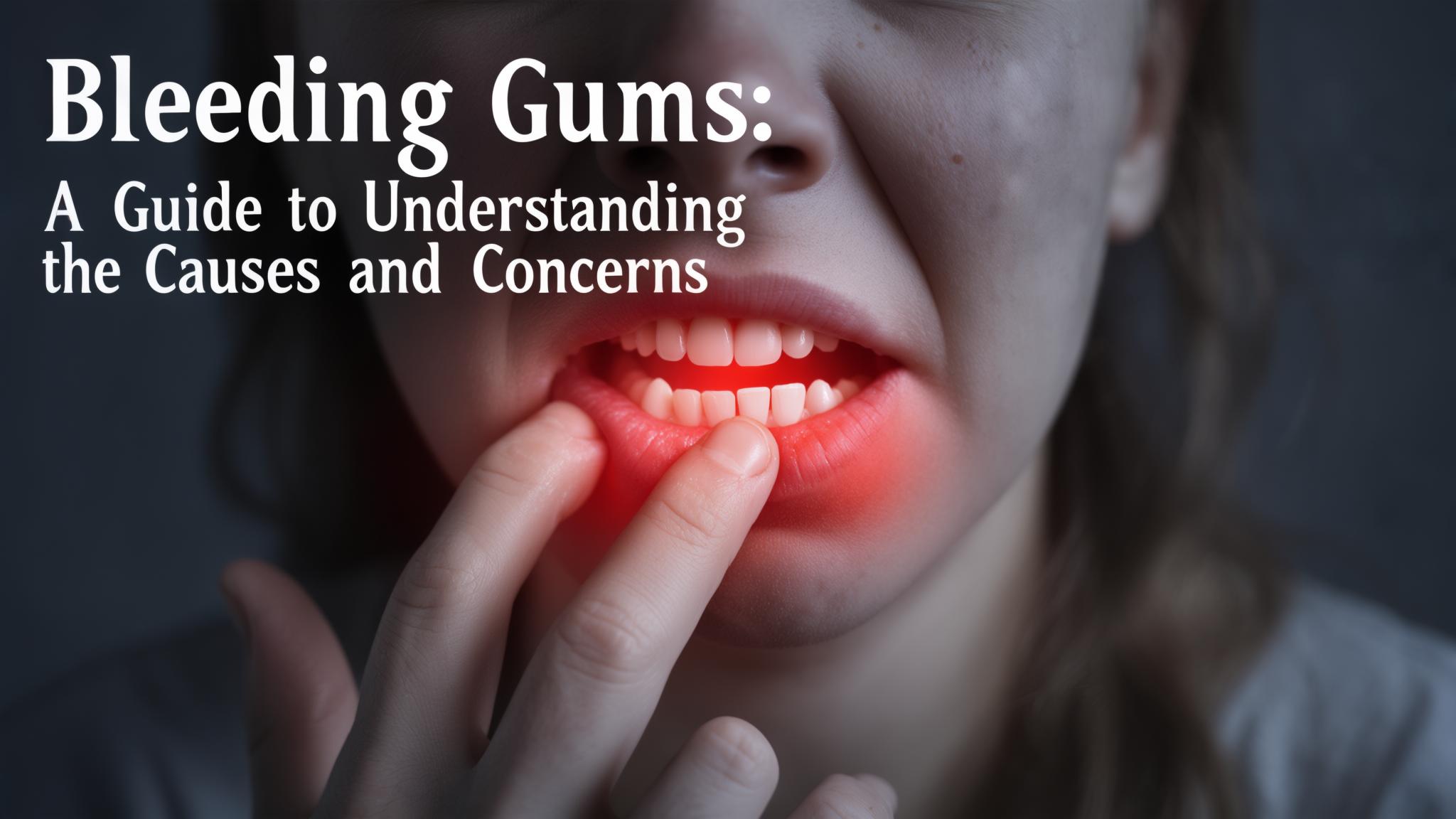Understanding Bleeding Gums: When Should You Be Concerned?
Bleeding gums can be a common issue, but it often raises questions and concerns. Many people experience this at some point, whether after brushing, flossing, or even spontaneously. Understanding the causes and knowing when to seek help is crucial for your oral health. In this article, we’ll explore what bleeding gums mean, common causes, when to worry, and what steps to take.
Understanding Bleeding Gums
What Are Bleeding Gums?
Bleeding gums occur when the tissue surrounding your teeth becomes inflamed or damaged, leading to blood vessels breaking. This can happen during daily activities like brushing or flossing, or it may occur without any apparent reason.
Signs and Symptoms of Bleeding Gums
When you notice bleeding gums, you might also observe other signs, including:
- Swelling: Gums may appear puffy or swollen.
- Redness: Healthy gums are usually pink; bleeding gums often look redder.
- Pain or Discomfort: You might feel tenderness or pain, especially when eating or brushing.
- Bad Breath: Persistent bad breath can accompany gum issues, often indicating bacteria buildup.
Recognizing these symptoms can help you understand the severity of the situation and whether you need to take action.
Common Causes of Bleeding Gums
Gingivitis
Gingivitis is the earliest stage of gum disease, often caused by plaque buildup at the gum line. Symptoms include red, swollen gums that bleed easily. If left untreated, gingivitis can progress to more serious conditions.
Periodontitis
Periodontitis is a more advanced form of gum disease that develops from untreated gingivitis. It can lead to the loss of tooth-supporting bone and may cause severe gum recession. This condition requires professional treatment to prevent further damage.
Hormonal Changes
Hormonal fluctuations can also impact gum health. For example:
- Pregnancy: Increased hormones can cause gums to swell and bleed more easily.
- Menstrual Cycle: Some women experience gum sensitivity during their periods.
- Menopause: Hormonal changes during menopause can lead to dry mouth and increased gum sensitivity.
Medical Conditions
Certain medical conditions can contribute to bleeding gums, including:
- Diabetes: This condition can impair your body’s ability to fight infections, making gum disease more likely.
- Blood Disorders: Conditions like hemophilia affect blood clotting, leading to increased bleeding.
- Vitamin Deficiencies: Lack of Vitamin C can cause scurvy, leading to gum issues and bleeding.
Medications
Some medications can increase the risk of bleeding gums. These include:
- Blood Thinners: Medications like warfarin can affect your body’s ability to stop bleeding.
- Antidepressants: Certain antidepressants can cause dry mouth, which can lead to gum problems.
Other Factors
Several lifestyle factors can also contribute to bleeding gums:
- Poor Oral Hygiene: Inadequate brushing and flossing allow plaque to build up.
- Tobacco Use: Smoking can harm gum health and lead to more severe gum disease.
- Stress: Stress can affect your immune system, making you more susceptible to infections.
When to Worry: Signs of Urgency
While occasional gum bleeding might not be serious, certain signs indicate you should seek help immediately:
- Persistent Bleeding: If your gums bleed consistently, even without brushing or flossing.
- Unexplained Bleeding: If bleeding occurs without an obvious cause, like injury or dental work.
- Severe Pain or Discomfort: Intense pain can indicate a more serious issue.
- Swelling Affecting Eating or Speaking: If you find it hard to eat or talk due to swelling.
- Signs of Infection: Look for fever, pus, or a bad taste in your mouth.
- Bleeding That Doesn’t Stop: If bleeding continues after applying pressure for 10 minutes, seek help.
What to Do in Case of Bleeding Gums
Immediate Steps to Take
If you experience bleeding gums, try these immediate steps:
- Rinse with Salt Water: Mix a teaspoon of salt in a glass of warm water and rinse your mouth.
- Apply Gentle Pressure: Use a clean cloth or gauze to apply gentle pressure to the area.
When to Contact a Dentist
Reach out to your dentist if:
- You notice any of the urgent signs mentioned above.
- You’re unsure about the cause of the bleeding.
- It’s your first time experiencing this issue.
Home Care and Prevention Strategies
To maintain healthy gums and prevent bleeding, consider these tips:
- Maintain Good Oral Hygiene: Brush twice a day and floss daily to remove plaque.
- Regular Dental Check-Ups: Schedule visits every six months for professional cleanings and evaluations.
Conclusion
Bleeding gums can be a common yet concerning issue. Understanding the causes and recognizing when to seek help can significantly impact your oral health. If you experience persistent symptoms, don’t hesitate to consult a dentist. Remember, maintaining good oral hygiene is key to preventing bleeding gums and ensuring a healthy smile for years to come.
References
- American Dental Association: Gum Disease
- Mayo Clinic: Bleeding Gums

